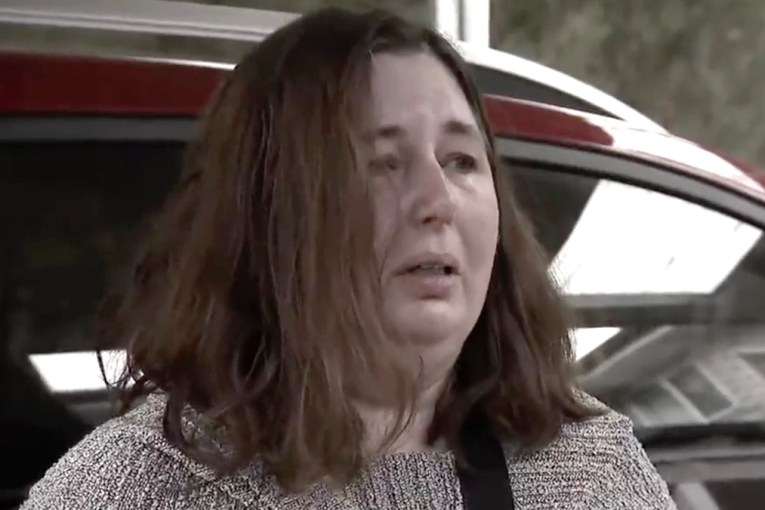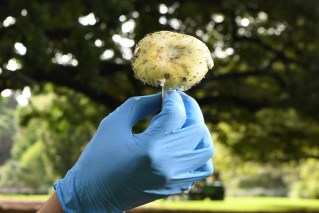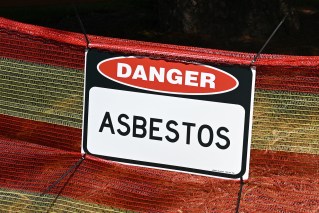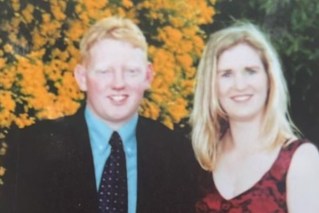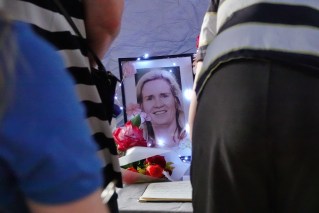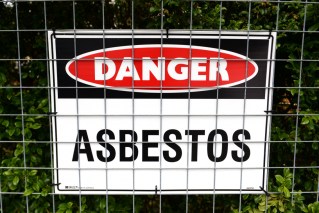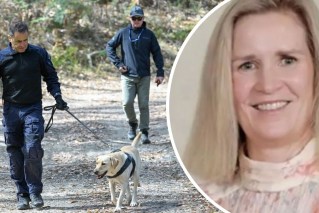Police knew Bourke Street jihadi was ‘radicalised’ but didn’t consider him ‘a threat’

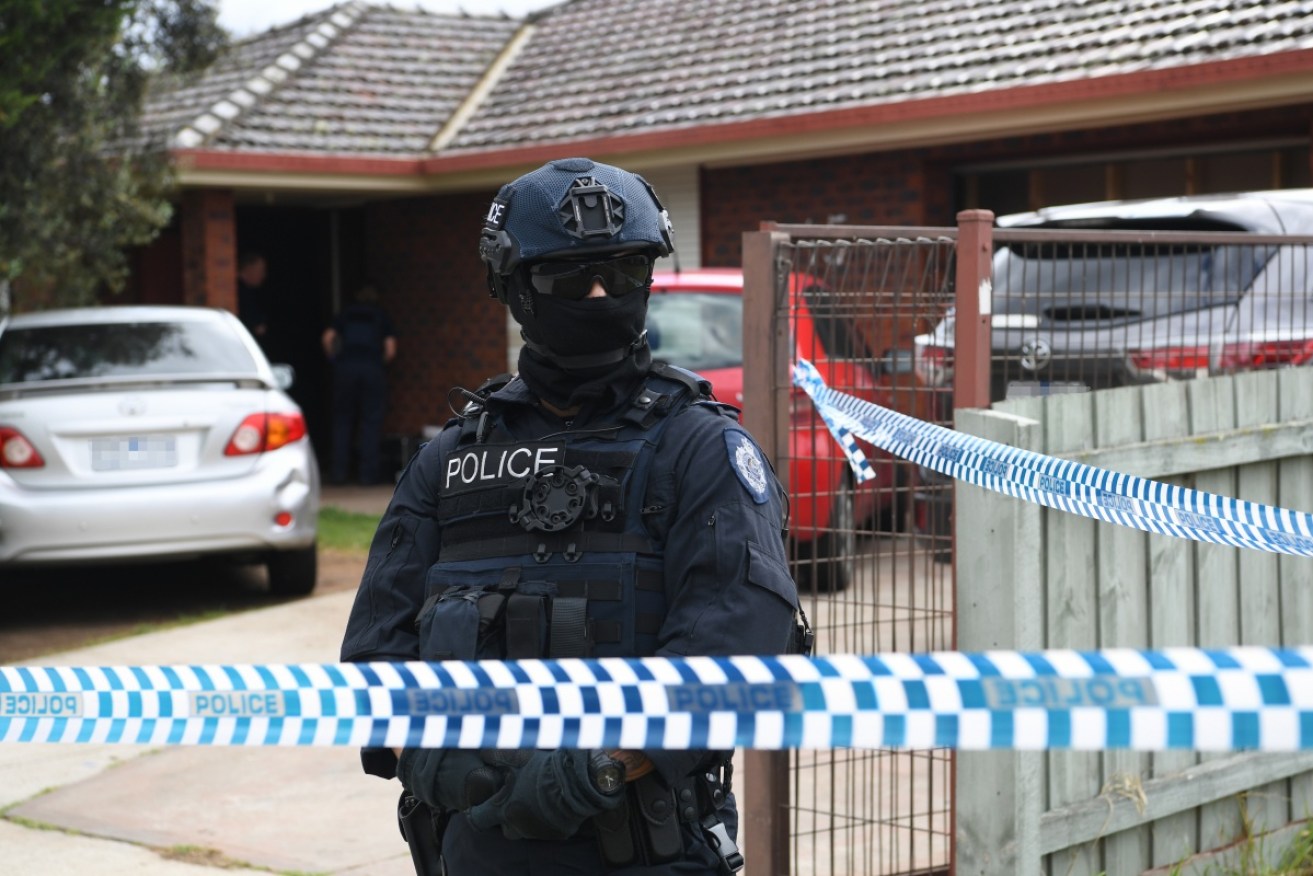
Police guard a property in Werribee in Melbourne's western suburbs after raids across Melbourne on Saturday. Photo: AAP
The lone terrorist who murdered a man in Melbourne’s Bourke Street on Friday had his passport cancelled amid concerns he would travel to Syria, Australian Federal Police say.
The AFP acknowledges Hassan Khalif Shire Ali was known to have held radical views, but was not actively monitored by authorities because he was not considered a threat to the community.
The AFP also confirmed his passport was cancelled in 2015 amid fears he planned to travel to Syria and that he had been investigated for his links with others associated with terrorism.
Police confirmed details about Shire Ali as properties in Werribee and Meadow Heights in Melbourne’s west and north respectively were raided by police.
Chief Commissioner Graham Ashton described them as a forensic search and said police had been “seizing items”.
“There could be further warrants based on that, and based on investigations that are being conducted at the moment,” he said on Saturday.
The raids came as it was revealed Shire Ali also had a criminal history of cannabis use, theft and driving offences. The ABC reported that Shire Ali had lived with family in Werribee, in Melbourne’s west, but that he had recently moved from the home because of “problems with substance abuse”.
On Friday afternoon, the 30-year-old drove a Holden Rodeo ute packed with gas cylinders into Bourke Street, opened their valves then set his car alight, in what police said was a failed plan to cause an explosion.
The Somalia-born Shire Ali stabbed three men, with 74-year-old Italian restaurateur Sisto Malaspina dying at the scene and two others now recovering in Royal Melbourne Hospital.
Mr Malaspina was a well known Melbourne identity as one of the owners of iconic Melbourne CBD restaurant and cafe Pellegrini’s Espresso Bar.
During the attack, police and civilians tried to subdue Shire Ali before a new police member, only three months out of the Academy, shot him in the chest. Shire Ali died in hospital.
A 24-year-old security guard from Hampton Park and a 58-year-old prominent Launceston man, Launceston businessman Rod Patterson, were taken to hospital with non-life threatening injuries.
Two innocent men stabbed in yesterday’s Bourke Street rampage remain in hospital tonight. @KristyMayr7 is live at the Alfred Hospital with an update on the victims and their conditions. #7News pic.twitter.com/byymBpcGpV
— 7NEWS Melbourne (@7NewsMelbourne) November 10, 2018
The junior policeman who confronted and fatally shot Shire Ali is being supported by family but is said to be in good spirits.
Chief Commissioner Ashton said Shire Ali was believed to have moved here from Somalia in the 1990s, and while Islamic State (IS) had claimed responsibility for the attack, he said the killer was “inspired” and “radicalised” by IS rather than receiving specific instructions.
He said Shire Ali’s brother, Ali Khalif Shire Ali, faced court earlier this year in Melbourne accused of plotting a terrorist attack on New Year’s Eve.
Counter-Terrorism Team investigators and the homicide detectives have launched a major investigation into the attack which occurred at 4.10pm on Friday, just before peak hour, in the heart of Melbourne’s CBD.

Police say Shire Ali intended to cause an explosion after filling his ute with gas cylinders and driving it into shops. Photo: AAP
Earlier reports Shire Ali’s wife had disappeared and had not been seen since last Thursday after becoming radicalised were incorrect. Police have spoken to her and know her current whereabouts.
Police stressed they have no reason to believe there is an “ongoing threat” but have increased weekend security around Melbourne due to a number of major events being held, including Stakes Day at Flemington racecourse, a soccer game at AAMI Park and commemorations for Remembrance Day on Sunday.
At a press conference on Saturday, Australian Federal Police Assistant Commissioner Ian McCartney revealed further details about Shire Ali, saying he held radical views and his passport was seized in 2015 when ASIO “assessed he planned to travel to Syria”.
“His brother was arrested with terrorism offences in November 2017 by the Victorian JCTT [Joint Counter Terrorism Team] and he’s currently on remand for those offences.
“In terms of the assessment on this individual, he was never a target of
the JCTT in terms of the investigations we undertake.
“The assessment was made that whilst he had radicalised views he didn’t pose a threat to the national security environment,” he said.
Assistant Commissioner Ian McCartney said Friday’s attack was a “reality check” and confirmed there were links with Islamic State.
“The event yesterday for us is a reality check even with the fall of the caliphate in the conflict zone. The threat continues to be real. But this is a complex and challenging business,” he said.
“The focus of the investigation moving forward is in terms of mitigating the current threat – as I said, we have done that, there was only one individual involved – but obvious in terms of how and why, and when he moved along that path to radicalisation to basically putting in place those actions, that’ll be a key focus of this investigation,” he said.
He said Shire Ali’s car contained gas cylinders and it is believed he intended to cause an explosion.
“It looks like he’s attempted to ignite a fire in the car, we believe at this stage with a view to igniting those canisters with some sort of explosion, but that didn’t eventuate,” Commissioner Ashton says.
Police boss defends cops’ actions
When asked if police should have shot Shire Ali in the leg rather than the chest, Commissioner Ashton said police were trained to kill if they believed their life or a member of the public was at risk.
“We don’t train people to wound people with firearms,” he says.
“You’re trained to shoot to kill, not to shoot to wound.”
Commissioner Ashton spoke briefly about the junior police member involved in stopping Shire Ali’s rampage, saying: “From what I saw of the footage, I think they really followed their training really, really well from what I could see”.
He also says there is no suggestion that Khalif was inspired by James “Dimitrious” Gargasoulas, who is currently on trial facing six charges of murder after allegedly mowing down pedestrians on the same stretch of Bourke Street in January 2017.
It is normal for people to have strong emotional or physical reactions following a distressing or frightening event.
People can seek help and advice by visiting your local doctor or calling: Lifeline 13 11 14 GriefLine 1300 845 745 BeyondBlue 1300 224 636
-with AAP
